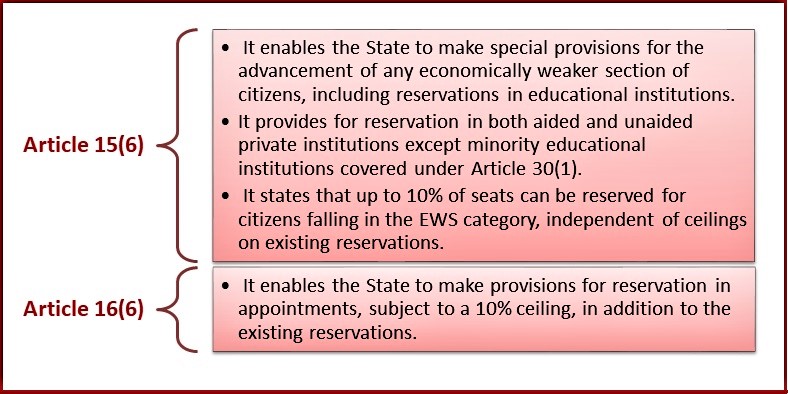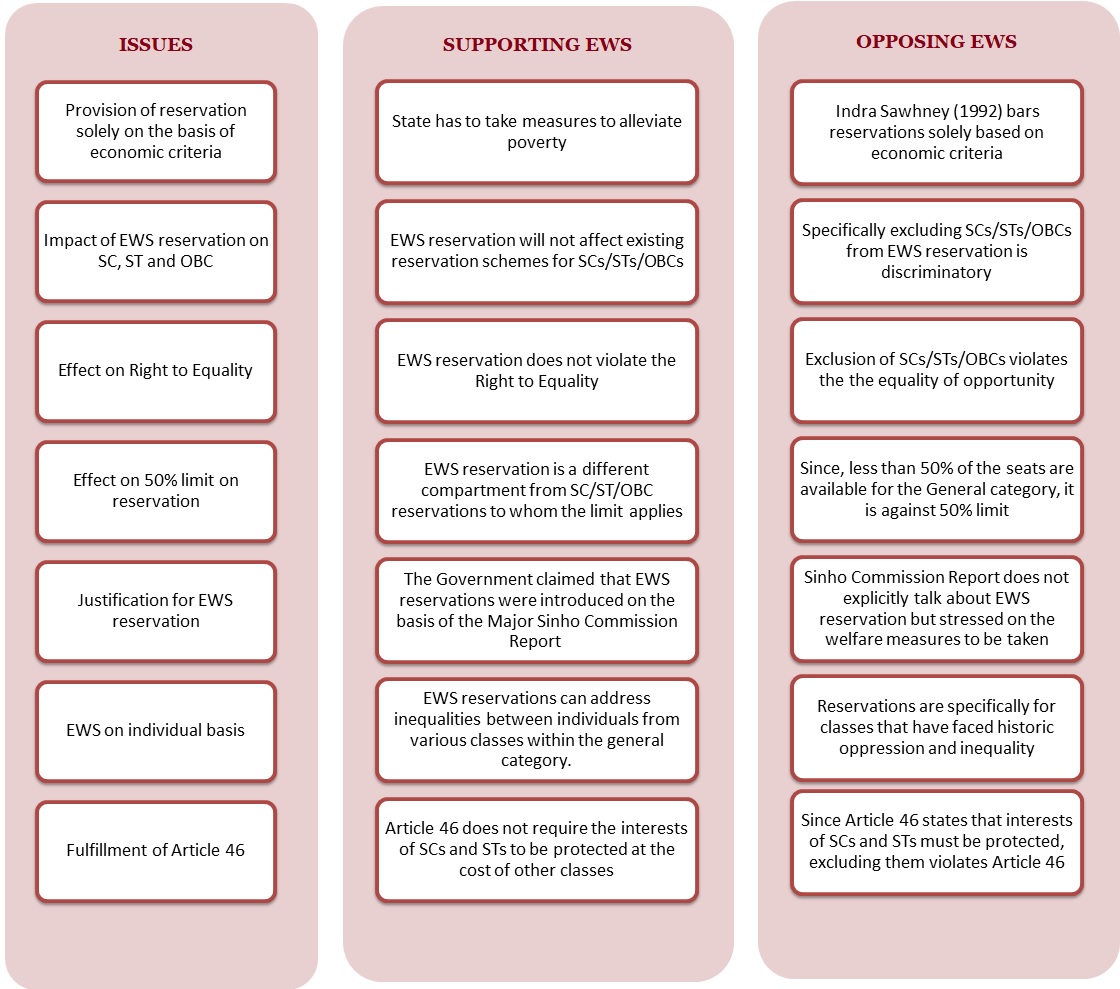7667766266
enquiry@shankarias.in
By a majority of 3:2, a five-judge bench of the Supreme Court has upheld the validity of the 103rd Constitutional Amendment, 2019.

To know about reservation for EWS Part-1, click here
|
Category |
Reservation granted |
|
Other Backward Classes |
27% |
|
Scheduled Castes |
15% |
|
Scheduled Tribes |
7.5% |
How has the Supreme Court ruled?
Majority opinion
Minority opinion

References